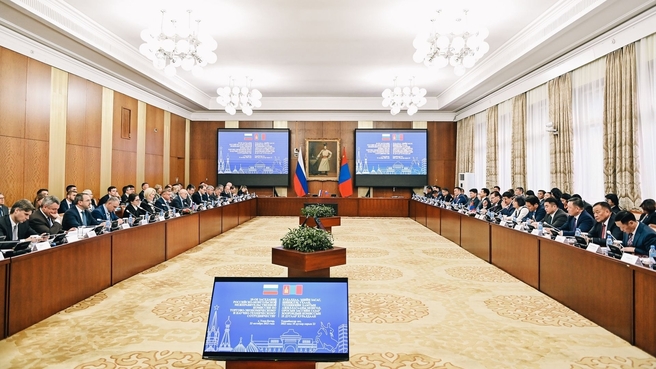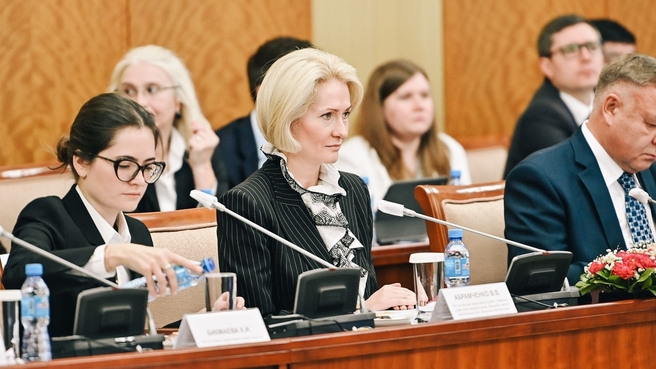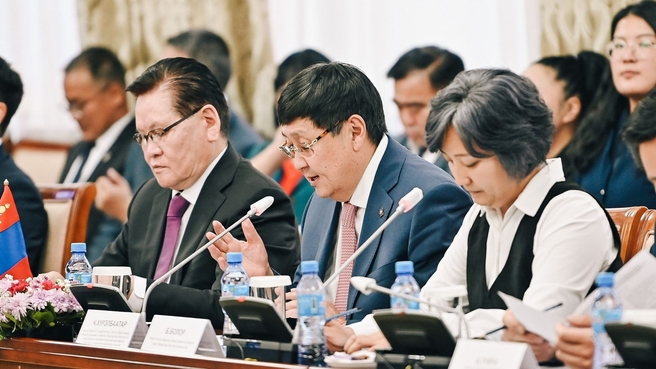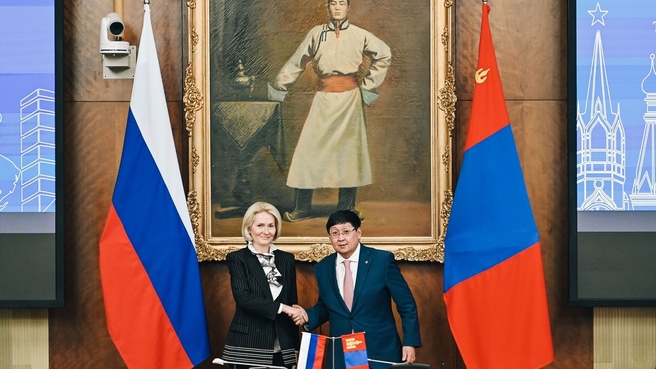During the meeting, the participants coordinated risk management agreements between the two countries’ customs agencies and an action plan on the mutual recognition of the status of the authorised economic operator.
“This mechanism will help us create simplified customs corridors. For example, deliveries between companies that have the status of the authorised economic operator will be mostly approved by Russia’s Federal Customs Service in the automatic mode, that is, without the involvement of customs inspectors. We have agreed to draft a bilateral international treaty,” Viktoria Abramchenko said.
Following the meeting, the parties agreed to expedite the development of a provisional agreement on a free trade zone with the Eurasian Economic Union (EAEU). “Until the document is signed, we propose using Russian online trade platforms such as Ozon to ensure the direct supply of Mongolian leather and cashmere goods to the Russian market,” the Deputy Prime Minister noted.
The Russian party expressed readiness to promote close cooperation in energy, saying that Russia, which has unique competencies and technology in this sphere, could build low-capacity nuclear power plants in Mongolia.
Viktoria Abramchenko also spoke about agreements on tourism. “We hope that by the end of the year the aggregate tourist traffic will reach the pre-pandemic level of 500,000 trips. To boost tourism, we intend to prepare a roadmap this year with our Mongolian and Chinese partners for the Great Tea Road cross-border tourist route, which will include a number of concrete projects,” she pointed out.
A major factor of tourism development is the possibility of cashless payment for goods and services using the Mir card or alternative payment methods. The sides resumed the discussion of that issue.
During her working visit, Viktoria Abramchenko was taken on a tour of a cashmere goods factory. “We visited Mongolia’s largest cashmere goods factory within the framework of the agreement on cashmere deliveries to Russia, where we agreed to prepare a roadmap to reduce the obstacles to the supply of cashmere wool and finished products to Russia,” the Deputy Prime Minister noted.
The process will involve the Ministry of Industry and Trade, the Ministry of Economic Development, the Federal Customs Service, the Central Bank and the border regions of Russia. “It is important to thoroughly test the route for the tax-free delivery of finished products to Russia. High-quality cashmere goods are available on the Russian market, but we want to make them affordable. As of now, obstacles to mutual trade account for about 50 percent of the selling price,” Viktoria Abramchenko said.
She also attended the opening ceremony of a swimming pool at the Ulaanbaatar branch of the Plekhanov University of Economics, the only branch of a Russian university in Mongolia.
“I am sure that the swimming pool will help promote healthy living not only among the students and faculty at the branch, but also among sports and swimming fans in Ulaanbaatar and neighbouring towns,” the Deputy Prime Minister emphasised.
The renovation of the swimming pool lasted about a year. The Russian university financed the renovation of the pool, the entrance space, changing rooms and the coaches’ room.












